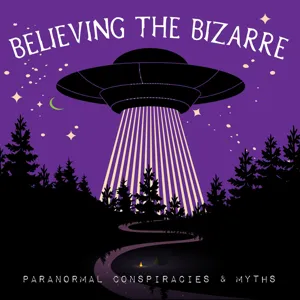Podcast Summary
Exploring the mysteries of space with BBC and NPR: Discover new asteroid, recent findings on a distant moon, and effects of spaceflight on human brain
The BBC offers valuable information and perspective on global stories, encouraging listeners to think for themselves. This week on Shortwave from NPR, Ari Shapiro joins Regina Barber and Emily Quang to discuss three science stories that explore the mysteries of space. First, they delve into a new asteroid discovery. Next, they discuss recent findings on a distant moon. Lastly, they deepen our understanding of the effects of spaceflight on the human brain. As we journey through space, these stories remind us of the endless possibilities and the importance of continuous learning. Tune in to Shortwave from NPR, sponsored by the BBC, for more thought-provoking stories.
Space travel affects the human brain: Space travel can cause brain changes, including fluid shifts and gray matter compression, which may not fully reverse after returning to Earth
Spaceflight significantly impacts the human brain. During space travel, the brain sits higher in the skull, and the top part compresses against it due to headward fluid shifts and gray matter shifts. Long-term space travel can lead to various brain changes, such as expanding ventricles to accommodate fluid shifts. These changes may not fully reverse even after returning to Earth. The brain seems to adapt to space, but more research is needed to understand the long-term health implications of these changes, especially considering that our bodies evolved with the presence of gravity.
Space travel may affect astronauts' brain health: Study shows potential brain compression risk for astronauts, further research needed; Phosphorus found in Saturn's moon Enceladus' plume, potential implications for extraterrestrial life search
The human brain may not adapt quickly enough to the fluid environment in space, and this could potentially lead to health risks. A study on astronauts who returned to Earth after less than three years in space showed that their brains did not expand as much as expected, which could lead to compression. More research is needed to understand the potential health risks and inform policies for longer space missions. Meanwhile, in exciting space news, scientists believe they have found water on Saturn's moon, Enceladus. The Cassini mission, which flew by Enceladus numerous times between 2004 and 2017, detected phosphorus in the moon's plume, which is similar to the macronutrient found in our Earth's oceans. Phosphorus is a key ingredient in fertilizer and can promote plant growth. While this discovery does not necessarily mean that anything is growing on Enceladus, it adds to the evidence that this moon could harbor an ocean beneath its icy surface. Further exploration is needed to confirm these findings and understand the potential implications for the search for extraterrestrial life.
Discoveries of Phosphates in Enceladus and a Quasi Moon: New discoveries of phosphates in Enceladus and a quasi moon expanding our understanding of the solar system, potentially bringing us closer to finding extraterrestrial life.
The discovery of phosphates in the ocean of Enceladus, a moon of Saturn, could be a positive sign for potential habitability. This finding, while not directly related to the study, is seen as a promising indicator by planetary geochemists. As for detecting life on Enceladus, future missions like Jupiter Icy Moon Explorer (Juice) are planned for this purpose. In the meantime, a newly discovered asteroid, 2023fw13, has been identified as a quasi moon due to its similar orbit around the sun with Earth's. Although it's not orbiting Earth, it's considered a fellow passenger on our cosmic journey. Quasi moons like this one have been discovered before and have relatively long lifetimes. This particular asteroid is estimated to have been circling the sun since around 100 BC and may continue doing so until 3,700 AD. However, its orbit will eventually break down, and it will likely leave our solar system. Overall, these discoveries expand our understanding of the solar system and bring us closer to answering the question of whether we are alone in the universe.
New Discovery of a Quasi Moon Orbiting Neptune: Astronomers discovered a new celestial body, the size of a Winnebago, orbiting Neptune, expanding our knowledge of the universe.
Astronomers have discovered a new celestial body, referred to as a Quasi Moon, orbiting Neptune. This finding was a surprise as scientists weren't actively searching for it. The Quasi Moon is stable in its orbit and doesn't pose any immediate danger to Earth. Its discovery is a reminder of the vastness of space and how much we still have to learn about it. Despite the challenges of observing distant celestial bodies, scientists continue to make new discoveries, broadening our understanding of the universe. The Quasi Moon, the size of a Winnebago, is just one of many discoveries waiting to be made in the vast expanse of space.





